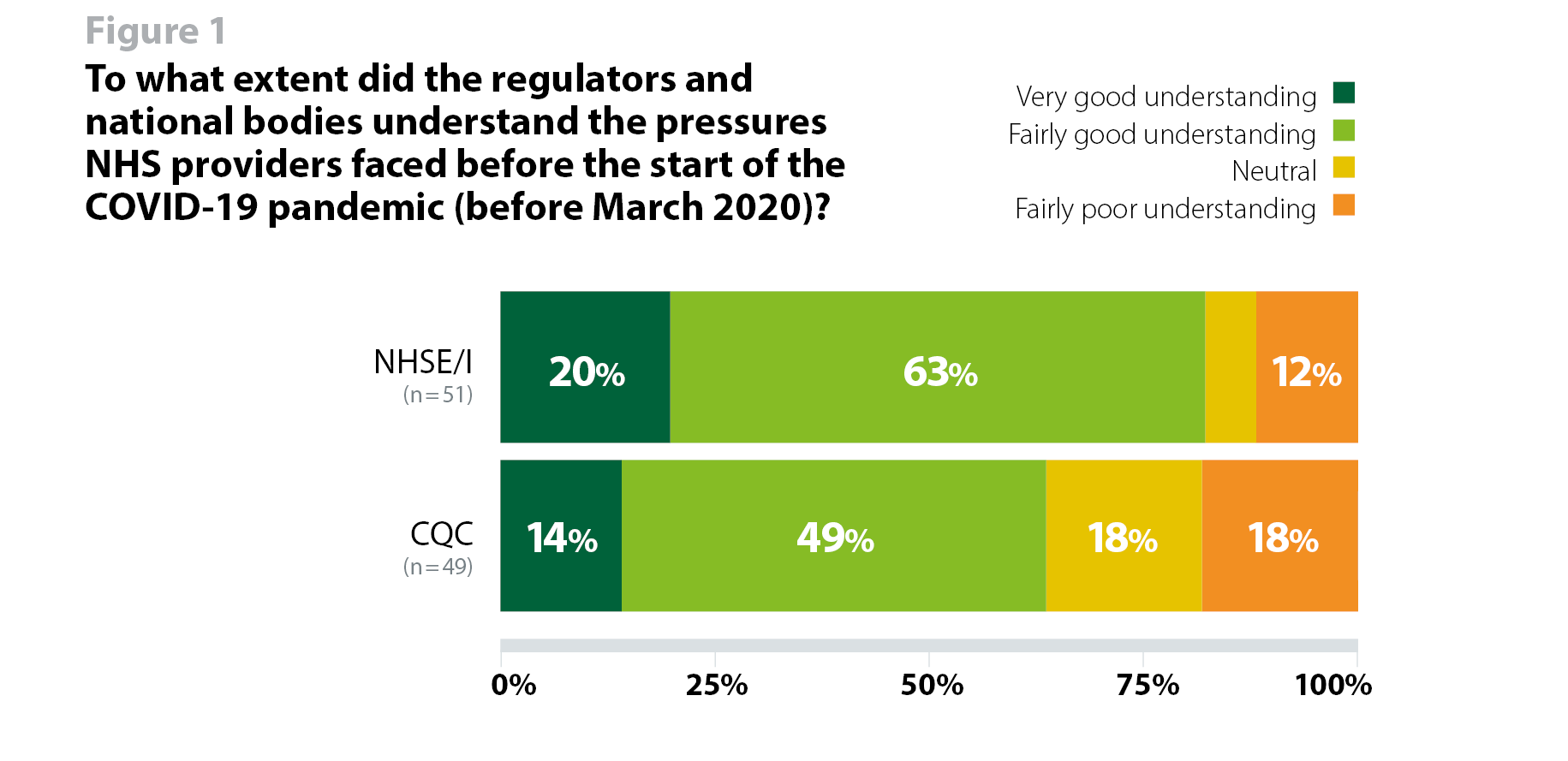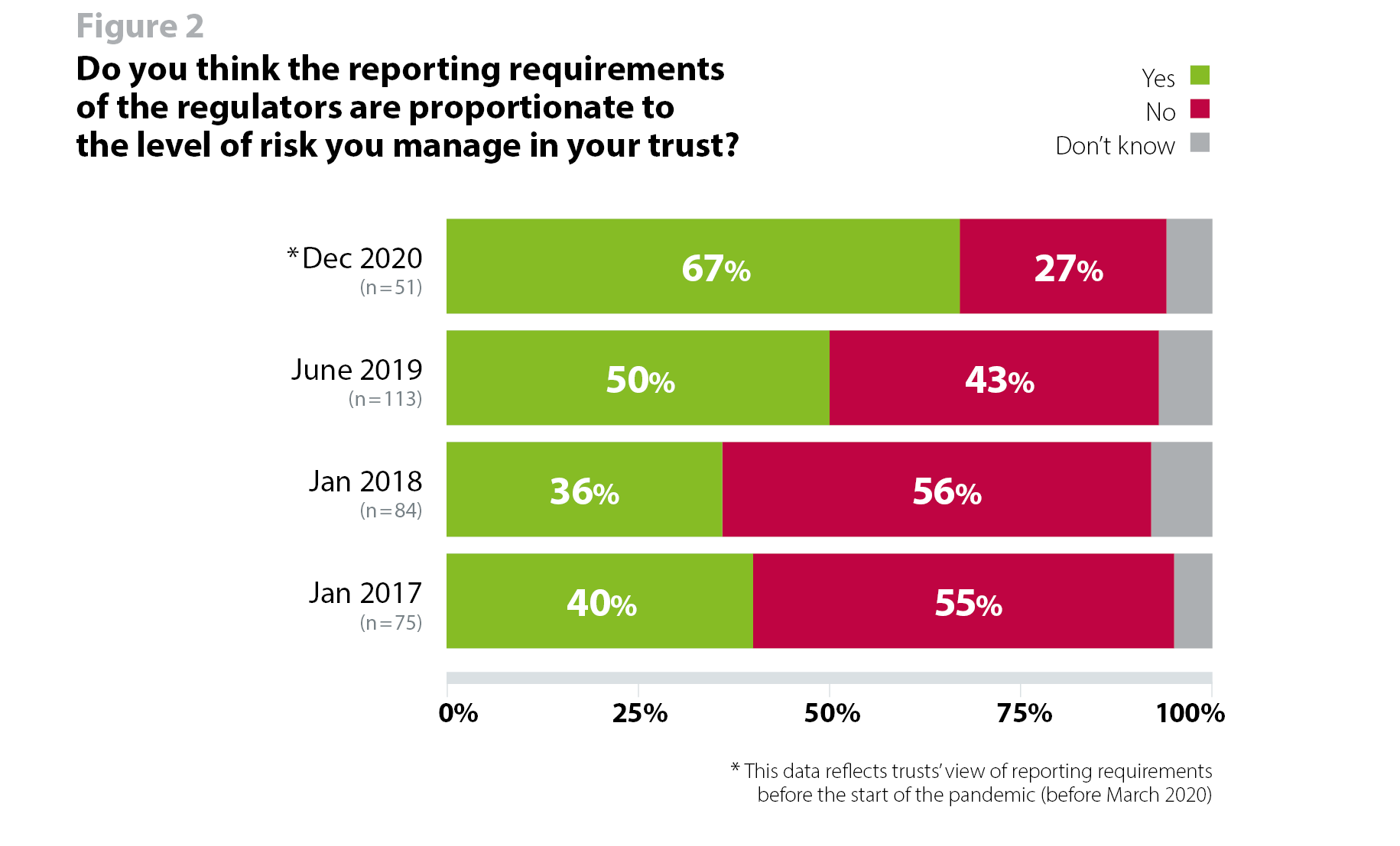Before the COVID-19 pandemic, changes were taking place nationally and regionally across health and care to embed more collaborative ways of working. In our 2019 regulation survey report, we highlighted the fact that this had already created a period of transition in which trusts were often navigating a complex, evolving and sometimes conflicting regulatory framework.
In 2019, we also highlighted the promising development that for the first time since the survey began, trusts did not report an increase in regulatory burden over the previous 12 months. This may well have been due to improvements in joined-up working between the national bodies, having a positive impact in terms of consistency and coordination between the regulators.
This year presents a very different context for the sector, as both CQC and NHS England and NHS Improvement scaled back their regulatory activity significantly to allow providers to prioritise their response to the COVID-19 pandemic. We did not directly compare regulatory burden prior to the start of the pandemic (i.e. before March 2020) to previous years in this survey, but we asked trusts to reflect on how they felt about the regulatory approach before the pandemic began, compared to during the pandemic (i.e. from March 2020 onwards).
Encouragingly, more than four in five (82%, 42 respondents) said NHS England and NHS Improvement understood the pressures before the start of the pandemic, and over half (63%, 31 respondents) said CQC understood the pressures before the start of the pandemic. This suggests that things were moving in the right direction before the pandemic (figure 1).

Two thirds (67%, 34 respondents) thought that reporting requirements from both national bodies were proportionate before the start of the pandemic. This is an improvement from our 2019 survey results where 50% of respondents said they felt reporting requirements of both regulators are proportionate to the level of risk they manage (figure 2).
